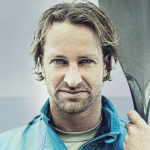Author: Eddie Botes
Eddie Botes, Leadership and Culture Speaker wrote this article, Critical Thinking for the Adaptive Leader. VUCA is an acronym that is now well established as a description of the business world that we currently operate in. In a Volatile, Uncertain, Complex, and Ambiguous world, there is no going back to the familiar and predictable world before the global financial […]
Eddie Botes, Leadership and Culture Speaker wrote this article, Critical Thinking for the Adaptive Leader.
VUCA is an acronym that is now well established as a description of the business world that we currently operate in. In a Volatile, Uncertain, Complex, and Ambiguous world, there is no going back to the familiar and predictable world before the global financial crisis of 2008 or even to what we thought was a semblance of normality pre-COVID 19. This is the “New Normal”, and while certain Leadership skills and characteristics continue to be relevant, if we are going to thrive going into the 2020’s we need a new skill set.
To achieve different outcomes, organizations are required to do things that they haven’t done before. Thinking drives behaviour and behaviour drives results and so the big question is, what kind of thinking or re-thinking is required by leaders today?
According to a recent report from the World Economic Forum, Critical thinking, Complex problem solving, and creative thinking skills are going to be the most important skills for the future of work. The alarming thing for organizations though is that based on a 2016 University of Washington study of over 1600 students from 10 U.S colleges, more than 70 % of participants said that University did little to help them develop critical thinking skills
What is critical thinking?
Critical thinking is the ability to think rationally and clearly about what to do and what to believe. A person with great critical thinking skills can do the following:
understand the logical connections between ideas
identify, construct and evaluate arguments
detect inconsistencies and common mistakes in reasoning
solve problems systematically
identify the relevance and importance of ideas
reflect on the justification of one’s own beliefs and values
Characteristics of critical thinkers
They always start with the premise that they may be wrong and are open to their mind being changed.
This kind of thinking requires a great deal of intellectual humility. It is the ability to acknowledge your flaws and to see your positive attributes accurately. It is a willingness to stretch and open your mind, to be open to other’s viewpoints, to acknowledge when you may be wrong. It is the willingness to ruthlessly challenge your beliefs when necessary.
Too many of us engage with others whilst already clinging to the idea that we are right. Key question: Are there any sacred cows in your thinking? Are there any ideas or beliefs that are not open to being challenged?
2. Curiosity.
Curiosity is a key trait of many successful thinkers. Being inquisitive and interested in the world around us and the people around us is a hallmark of critical thinkers.
Curious people don’t take everything at face value and will often ask why something is the way it is. Curiosity forces us to keep an open mind and is a starting point for being a life-long learner.
3. Self-Awareness.
This is where we are aware of our thinking. It is often called meta-cognition and is where we can think about the way we think. We need this level of introspection so that we are aware of how alert and attentive we are, how “present” we are. It puts us in a position to understand our biases and also to understand our emotional states and those of others.
4. Objectivity.
Critical thinkers can stay as objective as possible when looking at a situation or information. They do not let their own emotions or those of others cloud their judgment. They focus on the facts and the scientific evaluation of the information in front of them. We are all heavily influenced by our life experiences, our viewpoints, and the mental models that we operate from. The first step in objectivity is being aware of our biases and looking at an issue dispassionately. When we can remove ourselves from a situation, we can analyze it more thoroughly.
5. Identifying our biases.
Critical thinkers challenge themselves to identify the evidence that forms their belief systems and whether the source of their beliefs is credible. Doing this will help us to understand our biases and to question our pre-conceived notions. This is an important step in being aware of how our biases intrude on our thinking and also to recognize if the information is skewed in any particular direction. When we look at information, it’s important to ask if the information benefits anyone or if the source of the information has an agenda. Does the source leave out any information or evidence that doesn’t support its claims or beliefs?
6. Compassion and empathy.
We should follow the advice given in Stephen Covey’s excellent book “The 7 habits of highly effective people” – Seek first to understand and then to be understood. This is the ability to put ourselves in the other person’s position, to genuinely try and understand their mental mind map or their perspective. It’s the ability to truly listen and to listen with the intention of understanding and not merely so that we can respond or as a means to develop our come-back response.
Without compassion, we would view all information and situations from the cold, heartless, scientific facts, and data. It would be easy to allow our cynicism to become toxic and to become suspicious of everything we look at. To be a good critical thinker we must always be aware of the human element. It’s not all about the data and facts, it’s about using the information to collaborate more effectively and to make the right decisions.
7. Be willing to challenge the status quo.
Critical thinking means questioning long-established business practices and refusing to adhere to traditional methods simply because that’s the way it’s always been done. Critical thinkers are looking for smart, thoughtful answers and methods that consider all the current and relevant information and practices available. Their willingness to challenge the status quo may seem controversial, but it’s an essential part of the creative and innovative mind of a critical thinker.
8. Be aware of common thinking errors.
Critical thinkers don’t allow their logic and reasoning to become clouded by illusions and misconceptions. They are aware of common logical fallacies, which are errors in reasoning that often creep into arguments and debates. Some common errors in thinking include:
Circular reasoning, in which the premise of an argument or a conclusion is used as support for the argument itself.
Cognitive shortcut bias, in which you stubbornly stick to a favoured view or argument when other more effective possibilities or explanations exist.
Confusing correlation with causation. In other words, asserting that when two things happen together, one causes the other. Without direct evidence, this assumption isn’t justified.
9. Creative thinking.
There is often a misconception that critical thinkers cannot be creative thinkers. To come up with a creative solution to a problem involves not just having new ideas. It must also be the case that the new ideas being generated are useful and relevant to the task at hand. Critical thinking plays a crucial role in evaluating new ideas, selecting the best ones, and modifying them if necessary. Critical thinkers are open to experimenting with different methods and considering different viewpoints.
Eddie Botes works with leaders and teams to create a focused and adaptive organizational culture. These skills and others are crucial in creating the kind of culture where people feel safe to challenge convention and hierarchy and innovate for the future.
Contact Us at WeSpeak Global and follow us on Twitter
The articles, video and images embedded on these pages are from various speakers and talent.
These remain the property of its owner and are not affiliated with or endorsed by WeSpeak Global.

I once saw a cartoon meme that really caught my attention. A Father was chatting to his son. He was explaining the difference between being interested in success at school versus being committed to success at school. So Are You a Chicken, or a Pig? “Take your breakfast as an example, my boy,” the Father […]

It’s that time of the year for New Years resolutions again, where most of us put together a comprehensive list of resolutions and goals to be a better version of ourselves by thinking what we would ideally look like in the future: lose weight, get fitter, be a better spouse, etc and Why New Years’ […]

Ultrafast Computers Are Coming: Laser Bursts Drive Fastest-Ever Logic Gates. Go Digital What Happened? We are on the cusp of creating ultrafast computers that can operate at speeds much faster than anything we have today. How? By using laser bursts to drive the fastest-ever logic gates. This breakthrough was made possible by clarifying the role […]

My South Africa was not supposed to be a hit. Ingrid Jones contacted me late on a Sunday night to explain the concept and to urge me to do a ‘quick one’ for an inflight magazine. I did the piece in less than an hour and went to sleep. Next thing I heard was that […]

Build your leadership confidence with these 7 Ways to Be a More Confident Leader instantly-actionable tips from leadership keynote speaker and relatability expert Rachel DeAlto. In leadership, healthy confidence is key. Your team is looking to you for guidance, security, and support. But what if self-doubt is crowding out that inner boldness? First of […]

Chris Bertish- Captains Log 7th July is Shifting gears mentally! Finally getting to this point where you are comfortable with yourself, your position, and the craft– that’s a huge milestone. No leaks, all my main key systems are still functioning properly- Chart-plotter/ AIS/ water maker/ GPS/ Autopilot & Satellite coms….even though I have implemented a […]

25 YEARS IN BUSINESS 1. Marketing is the backbone of your business– always have a Marketing plan and ensure that every day you do something that will make you top of mind with your clients. 2. Stop playing small – always add another zero to everything you plan to do in terms of activities. Widen […]

At 26 years old, Tramayne Monaghan was the youngest divisional CFO for Tencent and a Top-35-under-35. He has spoken at global conferences and is a mentor to three digital businesses: Broadley Speaking, African Secret and TurnUp Music. He has launched and run various consumer mobile products such as WeChat, WeChat Wallet, VOOV, JOOX and PUBG […]
No results available
Our Mission
© All rights reserved 2025. Created using VOXEL THEME